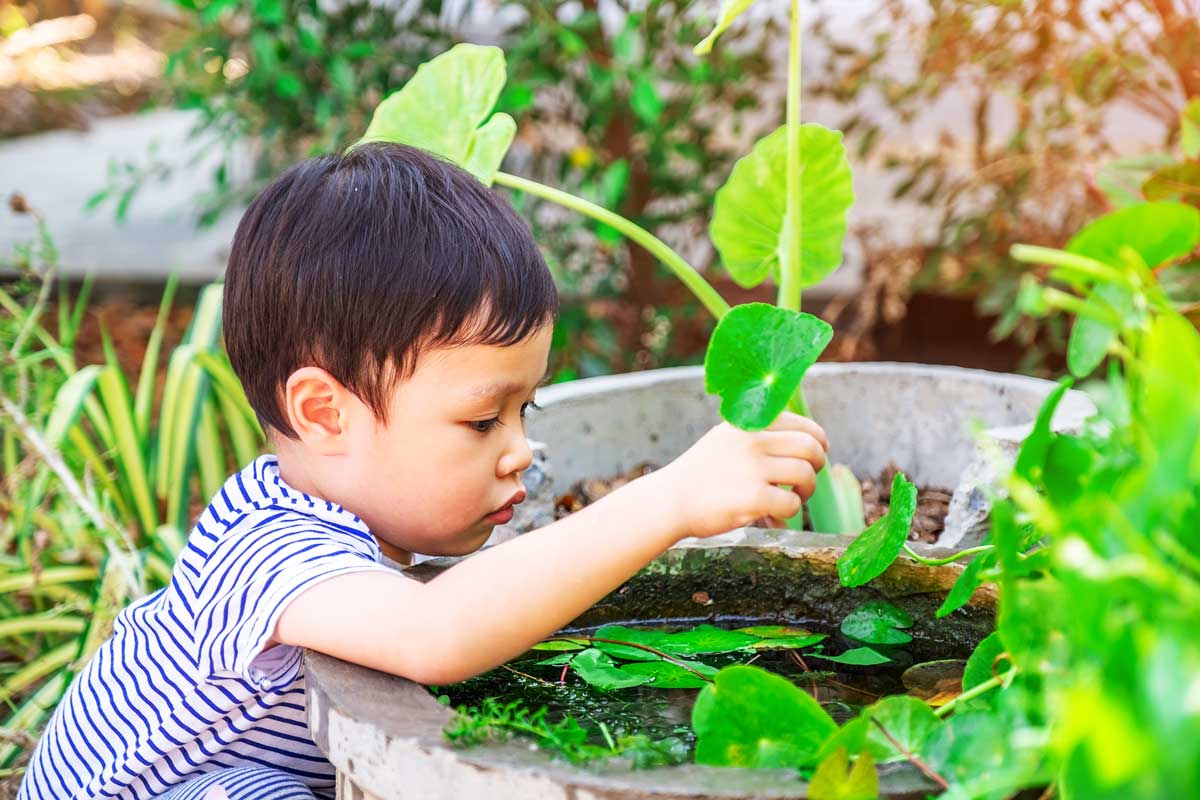Let’s Build A Boat!
Children will design and build a boat with recycled materials that can float and hold a small bear
Content Area:
Learning Goals:
This lesson will help toddlers and preschoolers meet the following educational standards:
- Develop beginning skills in the use of science and engineering practices, such as observing, asking questions, solving problems, and drawing conclusions.
- Develop and use models to represent their ideas, observations, and explanations through approaches such as drawing, building, or modeling with clay.
Learning Targets:
After this lesson, toddlers and preschoolers should be more proficient at:
- Expressing wonder and curiosity about their world by asking questions, solving problems and designing things
- Developing and using models to represent their ideas, observations and explanations through approaches such as drawing, building or modeling with clay

Let’s Build A Boat!
Lesson plan for toddlers/preschoolers
Step 1: Gather materials.
- Recycled containers (small cartons, bowls) ?
- Foam cups
- Coffee filters
- Clay or play dough
- Foil
- Straws
- Pipe cleaners
- Tape
- Water table or large container filled with water to test out boats
Note: Small parts pose a choking hazard and are not appropriate for children age five or under. Be sure to choose lesson materials that meet safety requirements.
Step 2: Introduce activity.
- In large group, invite children to share what they know about boats.
- Ask children to recall past float and sink activities and remind them about the buoyancy and density of objects.
- If children are not able to recall, do a quick sink and float activity to review.
- Explain that we want our boats to be buoyant not dense and encourage them to discuss how we can do that.
- Explain that they will be designing, creating and testing out their own boats.
Step 3: Engage children in lesson activities.
- In small groups, invite children to design and draw their own boats.
- Encourage children to look at the materials on the table and use them to inspire their drawings.
- After children are done drawing, invite them to build their own boats using the materials on the table.
- As the children are building, ask them if their boat looks like their design, why or why not? Ask them if they think the shape of their boat will affect if it floats or holds a bear?
- After the children are done building, ask children to predict if their boat will float while holding a small bear.
- Test out boats one at a time at the water table or large container filled with water.
- After all the boats have been tested, discuss and analyze why some of them floated with a bear and some didn’t?
- Invite children to redesign, build their boats and keep the investigation going during free choice time.
Step 4: Vocabulary.
- Predict:To guess what might happen next
- Design: To create a plan for something that will be built
- Test: To try out an idea to see if it works or not
- Conclude: To make statements about what was learned after an observation or experiment
- Analyze: To examine information in order to make conclusions
- Buoyancy: The upward force of an object that is produced by the fluid or air that the object is placed in
- Density: How compact the molecules of an object are
Step 5: Adapt lesson for toddlers or preschoolers.
Adapt Lesson for Toddlers
Toddlers may:
- Not be able to draw a precise plan
- Not be able to participate in extensive conversations around buoyancy and density
Child care providers may:
- Skip the design/draw step and go straight to building
- Skip the extensive conversations and focus more on the building of boats and testing them out
Adapt Lesson for Preschoolers
Preschoolers may:
- Want to design and build more than one boat to test out
- Want to test out their boats with other objects other than the small bears
Child care providers may:
- Supply additional materials for children to build their boats with
- Supply an assortment of heavy and lighter materials for children to put in the boat to test
Suggested Books
- Alphabet Boats by Samantha R. Vamos
- The Most Magnificent Thing by Ashley Spires
- Charlie’s Boat by: Kit Chase
Music and Movement
Outdoor Connections
- Go on a walk and collect materials that you can use to create a boat (sticks, leaves, bark, etc)
Comment on this lesson